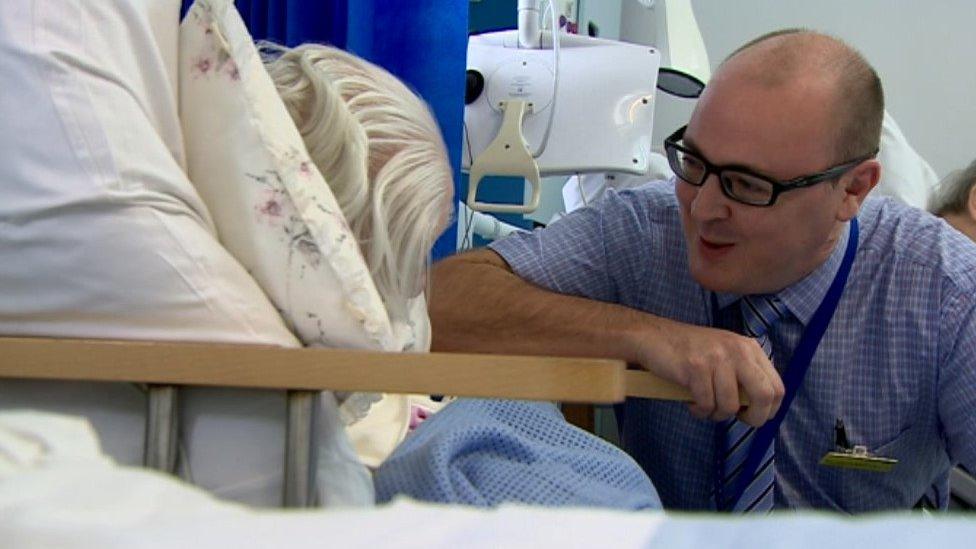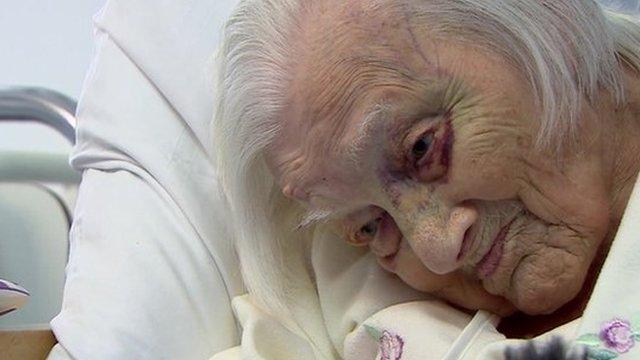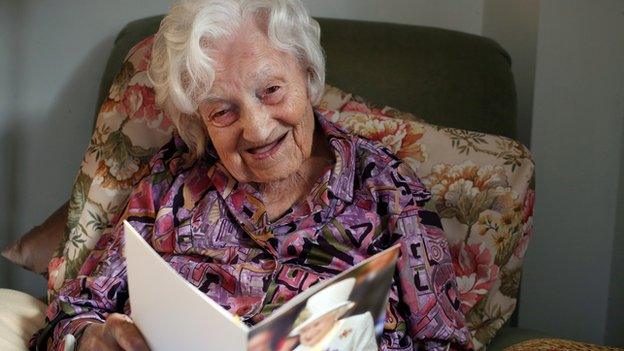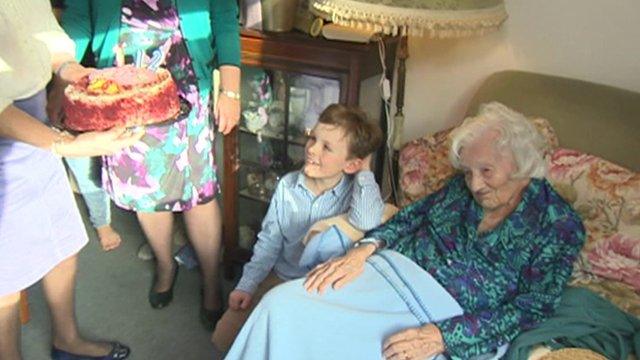Britain's oldest person Gladys Hooper has hip op at 112
- Published
Duncan Kennedy spoke to Gladys, 112, about possibly being the oldest person to have the procedure
A 112-year-old woman from the Isle of Wight is believed to be the oldest person in the world to have had a hip replacement.
Gladys Hooper, from Ryde, needed emergency surgery after fracturing her hip when she fell at home.
Orthopaedic surgeon Jason Millington said: "She's an amazing lady, to my knowledge she's the oldest person documented to have had this procedure."
Mrs Hooper is recovering at the island's St Mary's Hospital.

Jason Millington, orthopaedic surgeon, said the deciding factor for the operation was Mrs Hooper's health, not her age
The hospital said notwithstanding her age it was right to spend £6,000 on the operation to fit the ceramic hip.
Mr Millington said: "This was emergency surgery, it's not based on age.
"My philosophy is never too old to operate, just too unwell, and in Mrs Hooper's case she was certainly well enough.
"If the benefits of the surgery outweigh the risk then it's a pretty easy decision and you operate.
"She deserves treatment as much as anyone else."
Following the operation Mrs Hooper said she felt "somewhere near 80" in age.

Analysis, by Philippa Roxby, health reporter
This was an emergency operation to replace half of the right hip joint, after the patient's hip was fractured in a fall.
Instead of a total hip replacement, only the ball portion of the hip was replaced - not the socket.
Hip replacements are a common procedure, usually carried out in older people between 60 and 80 because of wear and tear or damage to the hip joint.
Patients over 100 years old are unusual, but their number is increasing because people are living longer.
There are risks in undergoing a general anaesthetic at that age. But there are other options - in this case a spinal anaesthetic was used.
The challenge now for Mrs Hooper is to get back on her feet and use her new hip - a process which can take four to six weeks for even the most mobile patients.

- Published16 October 2015

- Published18 January 2015

- Published18 January 2015
